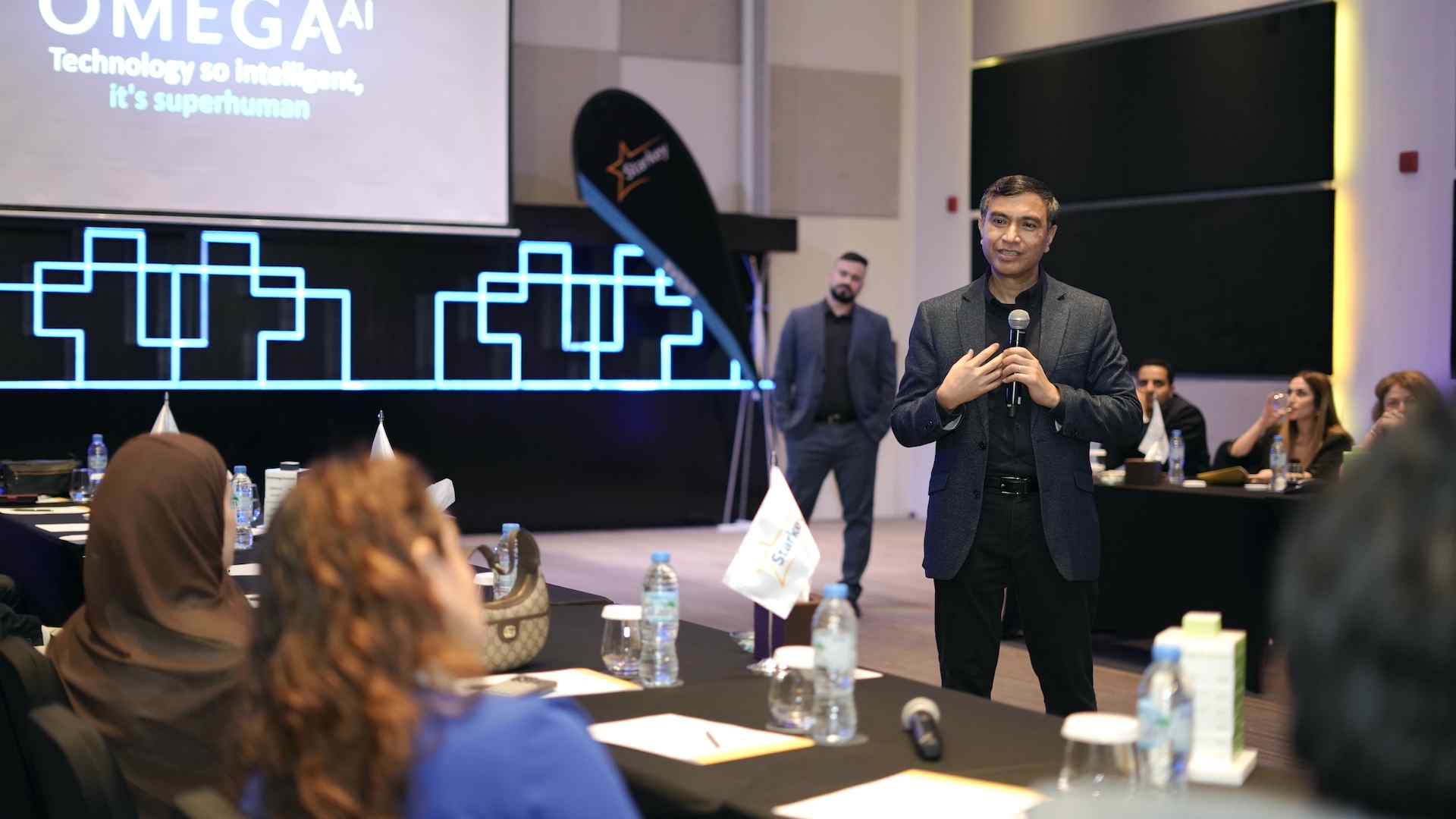Tech News
RDI paradigm shifts: how governments can adapt

GCC governments are placing Research, Development, and Innovation (RDI) at the heart of national strategy. According to a new report from Boston Consulting Group and Dubai Future Foundation with the World Governments Summit, six RDI paradigm shifts now define the field. The message is clear: adapt policy and engagement, or risk falling behind.
The six RDI paradigm shifts, in plain language
1) Disciplines are blending. Borders between fields are dissolving. Biology meets materials science; data science powers food tech; wearables turn into nutrient-delivering “smart” textiles. Consequently, governments should fund cross-disciplinary teams, not single-track silos. Interdisciplinary grants, co-supervised PhDs, and national priorities that cross ministries all help.
2) AI + big data need safe “playgrounds.” AI accelerates discovery, from virtual experiments to predictive models. Big data multiplies that effect. However, questions around ownership, consent, and privacy demand guardrails. Therefore, create regulatory sandboxes. In these supervised spaces, researchers and startups can test new methods while regulators stress-test policy.
3) Synthetic intelligence is here. Human expertise now pairs with machine computation. This “synthetic talent” changes methods and speed. Accordingly, education policy must add AI literacy across STEM and beyond. Moreover, public funding should back tools that keep sensitive computation local when possible, balancing capability with control.
4) Lab-to-market must move faster—without skipping basics. Pandemic-era vaccine timelines showed what is possible when mature science meets focused translation. Even so, breakthrough speed relied on decades of fundamental research. Hence, governments should provide patient capital for early-stage work and then unlock private funding as projects mature. This cadence protects depth while rewarding delivery.
5) Impact means more than the “impact factor.” Citations matter, yet they miss real-world value. Updated scorecards should include reproducibility, adoption, jobs created, and societal benefit. Additionally, expert panels can complement metrics. When reviewers celebrate learning, not just outcomes, labs take bold shots and share negative results that move fields forward.
6) Access is widening—and narrowing. Cheap tools and open methods democratize discovery. Meanwhile, compute-heavy AI stacks concentrate power. To keep the door open, governments can fund national computing, bridge academy-industry gaps, and build open data repositories. In parallel, incentives for private knowledge-sharing will broaden participation.
Voices from the ecosystem


Leaders across Dubai echo the urgency. Maya ElHachem of BCG underscores how AI and big data double research productivity and compress timelines in areas like drug development. Khalifa AlQama of Dubai Future Labs stresses talent, patient capital, and pro-innovation environments. Similarly, BCG’s Anna Flynn points to a future shaped by “synthetic talent,” where students treat AI as a research partner, not just a subject.

What can governments do next?
Set cross-cutting priorities. Pick missions that require collaboration—food security, resilient health, and sustainable industry. Then align budgets, grants, and procurement around those missions.
Fund the full pipeline. Back curiosity-driven research; support validation; scale pilots through sandboxes; use demand-side tools like challenge prizes and advance market commitments.
Equip the workforce. Update curricula with AI, data governance, and reproducibility. Additionally, reward faculty who co-create with industry while keeping open-science principles.
Invest in shared infrastructure. Provide secure compute, trusted data spaces, and testbeds for cities, factories, and logistics. Consequently, startups and labs build faster with lower cost.
Measure what matters. Report on translation speed, startup formation, public-private projects, and social impact. Publish the lessons. Improve the scorecard each year.
Dubai’s momentum
Dubai has already moved. The Dubai Research, Development, and Innovation Program advances a knowledge-based economy through grants, sandboxes, and targeted fields such as health, cognitive cities, AI, and robotics. As these programs scale, more founders and labs will find a predictable path from idea to impact.
Bottom line
The world’s innovation map is shifting. Governments that embrace these RDI paradigm shifts—and act with focus—will build ecosystems that prove resilient, ethical, and fast. With clear missions, practical sandboxes, AI-ready talent, and fair access to tools, the region can turn research into lasting value for society and the economy.
Check out our previous post Hybrid mesh firewall: Check Point named a Leader
Tech News
ACCELERATING AI ADOPTION IN HEARING HEALTH CRITICAL TO SUPPORTING PATIENTS WITH HEARING LOSS IN UAE

Drawing on feedback from patients across the globe, Starkey highlighted that accelerating AI adoption in hearing health is already transforming daily life for people with hearing challenges, improving how they hear, connect and participate with greater confidence. Starkey addressed UAE’s leading audiologists, clinic owners and industry stakeholders from across the Middle East and Africa, led by Dr. Achin Bhowmik, Chief Technology Officer and Executive Vice President of Engineering.
The session focused on Starkey’s blueprint for AI-led hearing performance for patients in UAE and wider Middle East region, anchored by Omega AI, and detailed how the platform is advancing real-world speech clarity in challenging noisy environments, listening comfort and spatial awareness today, while setting the architecture for next-generation sound processing.
“At Starkey, sound quality is always, and will remain, job number one. Hearing is essential for how people connect, work, and participate in everyday life. When people delay action, outcomes suffer and quality of life and cognitive ability can decline unnecessarily,” said Dr. Achin Bhowmik, Chief Technology Officer and Executive Vice President of Engineering, Starkey. “Omega AI is built to bring people closer to natural hearing in real environments, using an industry-first 360-degree deep neural network processing and generative AI designed to dynamically adapt as listening conditions change and assist the patient in all environments. Hearing aids are high tech multifunction devices. The next step is accelerating adoption, so these capabilities reach more patients in the UAE who can benefit from them.”
During the session, Starkey highlighted how Omega AI advances the shift from conventional amplification toward intelligent hearing systems designed for clarity, comfort and usability. Omega AI includes new connectivity features including Auracast assistant and Google Fast Pair, fall detection and a special AI assistant. Starkey is setting the new standards for the industry.
The briefing took place against a backdrop of hearing loss emerging as a major global health and societal challenge. The World Health Organization projects that by 2050, nearly 2.5 billion people will have some degree of hearing loss, with more than 700 million expected to require hearing rehabilitation. The WHO also estimates the annual global cost of unaddressed hearing loss at almost US$ 1 trillion, reinforcing why prevention, early checks, and access to care matter.
The roadmap also emphasized connectivity and ecosystem design, including features intended to reduce friction for wearers, support faster fitting and follow-up, and enable a smoother clinical experience for hearing care professionals.
“Audiologists and clinic leaders in the Middle East, Africa and Turkey can rest assured that the new OMEGA AI platform will give them confidence and speed in treating their patients,” said Giscard Bechara, Director, Starkey MEA. “This briefing was designed to align the professionals on a larger point – hearing care is the need of the hour. Starkey has the technology today to service our patients better than any time before and we will waste no effort to educate and bring it here to our patients in the UAE and the Middle East.”
Starkey Middle East and Africa will continue engaging hearing care professionals and partners through professional education, technology briefings and clinical enablement initiatives, supporting evidence-based hearing care practices and helping translate the latest hearing innovation into improved patient outcomes.
Tech News
NEMETSCHEK GROUP AND INGRAM MICRO PARTNER TO ACCELERATE DIGITAL TRANSFORMATION ACROSS THE MIDDLE EAST AND NORTH AFRICA REGION

The Nemetschek Group, one of the world’s leading software providers for the Architecture, Engineering, Construction and Operations (AEC/O) industry, announced a strategic partnership with Ingram Micro, a business-to-business (B2B) platform company for the global technology ecosystem, to jointly explore new business opportunities and accelerate digital transformation across the Middle East and North Africa (MENA).
The strategic partnership brings together Nemetschek’s cutting-edge software portfolio with Ingram Micro’s extensive regional reach, ecosystem enablement capabilities and deep market expertise. As part of the collaboration, both companies will work closely on joint market development initiatives, including coordinated marketing campaigns, industry events and customer engagement activities aimed at increasing awareness and adoption of Nemetschek’s solutions across the region. The collaboration also outlines a strong focus on sales enablement and training, equipping Ingram Micro’s teams with the technical, product and commercial expertise required to effectively promote, demonstrate and support Nemetschek technologies.
In addition, the partnership will support customers throughout their digital transformation journey through pre-sales collaboration, post-sales support and long-term account growth strategies. It is designed as a progressive onboarding framework, with Ingram Micro expected to be gradually onboarded across Nemetschek’s portfolio on a brand-by-brand basis as the partnership evolves.
Yves Padrines, Chief Executive Officer of the Nemetschek Group, noted that partnerships are a cornerstone of Nemetschek’s strategy to scale innovation and drive digital transformation globally. “The Middle East and North Africa region offers immense opportunity, defined by ambitious infrastructure programs and a clear commitment to digitalization. By collaborating with Ingram Micro, we are strengthening our ability to deliver open, connected and future-ready solutions that empower our customers to design, build and operate more efficiently and sustainably.”
Commenting on the partnership, Muayad Simbawa, Managing Director of Nemetschek Arabia, said: “This collaboration represents a strategic step forward in our mission to enable meaningful digital transformation across the built environment in the Middle East and North Africa. Ingram Micro’s strong regional footprint, ecosystem-driven approach and proven ability to scale technology adoption make them an ideal partner as we continue to empower architects, engineers and construction professionals with innovative, open and interoperable solutions. Together, we are laying the foundation for a more connected, efficient and sustainable future for the industry.”
Shaikh Mohammed Ahmed, Managing Director, Ingram Micro KSA, added: “At Ingram Micro, we see digital transformation as a collaborative journey built on strong partnerships and shared expertise. Our collaboration with Nemetschek reinforces our commitment to enabling our customers and partners with world-class technologies that address the evolving needs of the AEC sector. By combining Nemetschek’s industry-leading solutions with our regional capabilities and enablement services, we aim to unlock new growth opportunities and deliver tangible value across the MENA region.”
Ingram Micro is a leading global technology distributor and services provider, playing a critical role in the IT ecosystem by connecting technology manufacturers with solution providers and end customers. Through its extensive portfolio, digital platforms and value-added services, Ingram Micro enables businesses to scale, innovate and transform in an increasingly digital world.
The partnership underscores both companies’ shared vision of driving innovation, accelerating technology adoption and supporting regional ambitions for smarter infrastructure, sustainable development and digitally enabled economies.
Tech News
The First Saudi Conference on Gynecology and Fertility Concludes in Jeddah

Embryology 4.0 and Artificial Intelligence Lead Conference Discussions
The First Saudi Conference on Gynecology and Fertility (GFS) concluded its proceedings in Jeddah under the patronage of His Highness Prince Saud bin Abdullah bin Jalawi Al Saud, Governor of Jeddah. The conference brought together more than 40 experts and speakers from a distinguished group of local and international specialists, marking a new milestone in the transformation of specialized healthcare in the Kingdom. This scientific event gathered leading global medical experts under an academic platform organized by Dr. Ayman Oraif, Consultant and Director of the IVF Center and Reproductive Surgery at King’s College Hospital London – Jeddah.
A Scientific Platform for Women’s Health
Held from January 29 to 31, 2026, the conference reaffirmed the Kingdom’s leading role in keeping pace with the latest global medical advancements and supporting women’s and family health, in alignment with the objectives of the healthcare transformation program and Saudi Vision 2030. The scientific program featured specialized sessions and hands-on workshops addressing the future of fertility treatment, surgical precision, innovation in minimally invasive gynecologic surgery, and the evolution of women’s healthcare across different stages of life.
Participants reviewed the latest surgical innovations in gynecologic oncology, endoscopic and laparoscopic procedures, and reproductive surgery, within the context of the growing trend toward integrating advanced medical technologies to enhance quality of care and treatment outcomes.
Embryology 4.0… An Artificial Intelligence Revolution
Discussions highlighted the concept of Embryology 4.0, which integrates medical expertise with advanced digital technologies, including the use of artificial intelligence in embryo selection and assessment, in vitro maturation (IVM) techniques, embryonic mosaicism, as well as the development of accreditation standards for fertility laboratories and the enhancement of outcome quality.
Knowledge Exchange and Capacity Building
In turn, Dr. Ayman Oraif, Consultant and Director of the IVF Center and Reproductive Surgery at the hospital, affirmed that the conference delivered highly specialized scientific content reflecting the rapid advancements in infertility treatment and assisted reproductive technologies. He noted that the Kingdom has become well positioned to adopt these technologies and innovate new solutions to improve fertility outcomes.
Stem Cells, A New Hope for Fertility
Within the scope of the discussions, Dr. Oraif pointed out that the use of stem cells in the treatment of infertility and premature ovarian insufficiency represents a promising scientific horizon in the field of regenerative medicine. He referred to the study he presented on premature ovarian insufficiency, noting that this condition affects approximately 1% of women before the age of forty and may benefit from treatment using mesenchymal stem cells derived from bone marrow or menstrual blood. Preliminary studies have demonstrated these cells’ potential to improve ovarian function and enhance fertility indicators in patients.
According to the study, clinical trials showed encouraging results, including the resumption of menstruation, improved hormone levels, and increased pregnancy rates, without significant reported complications. The discussions also highlighted complementary protocols, such as platelet-rich plasma (PRP) therapy, which has demonstrated improvements in oocyte quality and pregnancy rates reaching approximately 20% in some studies.
A Forward-Looking Vision for Saudi Medicine
As the first conference of its kind to be held in the Kingdom, this event represents a qualitative addition to the path of specialized medical education and the support of research and development programs, reinforcing Saudi Arabia’s position as a regional hub for medical innovation. It also reflects the success of King’s College Hospital London – Jeddah in attracting leading global scientists and providing a platform for specialized scientific dialogue in women’s health and fertility research.
The conference is expected to contribute to establishing frameworks for research collaboration between Saudi and international institutions, while exploring the future of regenerative medicine and artificial intelligence in the treatment of gynecologic diseases and infertility. With the emergence of promising results in stem cell research, hopes are rising that the coming decade will deliver practical solutions for a wide range of fertility disorders, supported by institutional backing and a national vision that aims to place the Kingdom at the forefront of the global medical landscape.
-

 Tech News2 years ago
Tech News2 years agoDenodo Bolsters Executive Team by Hiring Christophe Culine as its Chief Revenue Officer
-

 VAR10 months ago
VAR10 months agoMicrosoft Launches New Surface Copilot+ PCs for Business
-
News10 years ago
SENDQUICK (TALARIAX) INTRODUCES SQOOPE – THE BREAKTHROUGH IN MOBILE MESSAGING
-

 Tech Interviews2 years ago
Tech Interviews2 years agoNavigating the Cybersecurity Landscape in Hybrid Work Environments
-

 Tech News7 months ago
Tech News7 months agoNothing Launches flagship Nothing Phone (3) and Headphone (1) in theme with the Iconic Museum of the Future in Dubai
-

 VAR1 year ago
VAR1 year agoSamsung Galaxy Z Fold6 vs Google Pixel 9 Pro Fold: Clash Of The Folding Phenoms
-

 Tech News2 years ago
Tech News2 years agoBrighton College Abu Dhabi and Brighton College Al Ain Donate 954 IT Devices in Support of ‘Donate Your Own Device’ Campaign
-

 Editorial1 year ago
Editorial1 year agoCelebrating UAE National Day: A Legacy of Leadership and Technological Innovation






















